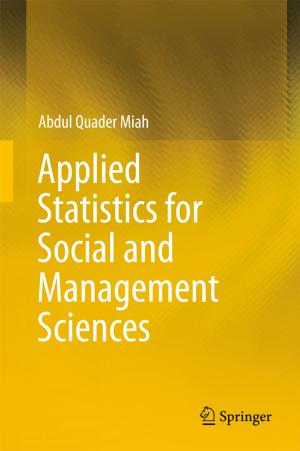Inner Experience of the Chinese People
Globalization, Social Transformation, and the Evolution of Social Mentality
Nonfiction, Health & Well Being, Psychology, Personality, Social & Cultural Studies, Social Science, Sociology| Author: | ISBN: | 9789811049866 | |
| Publisher: | Springer Singapore | Publication: | October 24, 2017 |
| Imprint: | Springer | Language: | English |
| Author: | |
| ISBN: | 9789811049866 |
| Publisher: | Springer Singapore |
| Publication: | October 24, 2017 |
| Imprint: | Springer |
| Language: | English |
This book comprehensively explores the changes in the Chinese spiritual world from the perspective of transition and transformation. Chinese feeling, a brand-new concept corresponding to Chinese experience, refers to the vicissitudes that 1.3 billion Chinese people have been through in their spiritual worlds. The book discusses this concept together with Chinese experience, two aspects of the transformation of the Chinese mentality that resulted from the unprecedented social changes since 1978, and which have given this unique era historical meaning and cultural values. At the same time they offer a dual perspective for understanding this great social transition.
Further, the book considers what will happen if we only focus on the “Chinese Experience” while neglecting the “Chinese Feeling”; the changes the Chinese people undergo when their desires, wishes and personalities have changed China; and how their emotionally charged social mentality follow eb
bs and flows of the changing society. Lastly it asks what embarrassment and frustration the population will be faced with next after the tribulations their spiritual world has already been through.
This book comprehensively explores the changes in the Chinese spiritual world from the perspective of transition and transformation. Chinese feeling, a brand-new concept corresponding to Chinese experience, refers to the vicissitudes that 1.3 billion Chinese people have been through in their spiritual worlds. The book discusses this concept together with Chinese experience, two aspects of the transformation of the Chinese mentality that resulted from the unprecedented social changes since 1978, and which have given this unique era historical meaning and cultural values. At the same time they offer a dual perspective for understanding this great social transition.
Further, the book considers what will happen if we only focus on the “Chinese Experience” while neglecting the “Chinese Feeling”; the changes the Chinese people undergo when their desires, wishes and personalities have changed China; and how their emotionally charged social mentality follow eb
bs and flows of the changing society. Lastly it asks what embarrassment and frustration the population will be faced with next after the tribulations their spiritual world has already been through.















